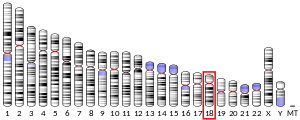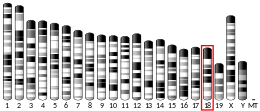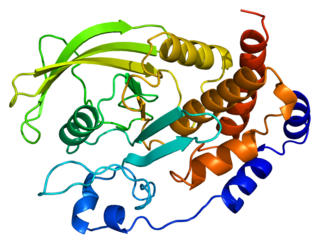
Tyrosine-protein phosphatase non-receptor type 1 also known as protein-tyrosine phosphatase 1B (PTP1B) is an enzyme that is the founding member of the protein tyrosine phosphatase (PTP) family. In humans it is encoded by the PTPN1 gene. PTP1B is a negative regulator of the insulin signaling pathway and is considered a promising potential therapeutic target, in particular for treatment of type 2 diabetes. It has also been implicated in the development of breast cancer and has been explored as a potential therapeutic target in that avenue as well.

Tyrosine-protein phosphatase non-receptor type 12 is an enzyme that in humans is encoded by the PTPN12 gene.

Receptor-type tyrosine-protein phosphatase alpha is an enzyme that in humans is encoded by the PTPRA gene.

Receptor-type tyrosine-protein phosphatase F is an enzyme that, in humans, is encoded by the PTPRF gene.

Receptor-type tyrosine-protein phosphatase epsilon is an enzyme that in humans is encoded by the PTPRE gene.

Cytoplasmic tyrosine-protein kinase BMX is an enzyme that in humans is encoded by the BMX gene.

Receptor-type tyrosine-protein phosphatase zeta also known as phosphacan is an enzyme that in humans is encoded by the PTPRZ1 gene.

Receptor-type tyrosine-protein phosphatase eta is an enzyme that in humans is encoded by the PTPRJ gene.

Protein tyrosine phosphatase type IVA 3 is an enzyme that in humans is encoded by the PTP4A3 gene.

Receptor-type tyrosine-protein phosphatase mu is an enzyme that in humans is encoded by the PTPRM gene.

Protein tyrosine phosphatase type IVA 1 is an enzyme that in humans is encoded by the PTP4A1 gene.

Liprin-alpha-1 is a protein that in humans is encoded by the PPFIA1 gene.
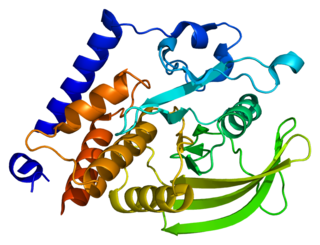
Tyrosine-protein phosphatase non-receptor type 18 is an enzyme that in humans is encoded by the PTPN18 gene.
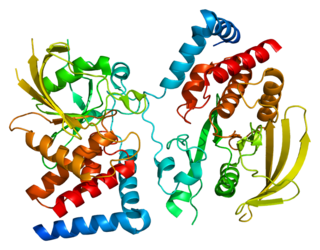
Receptor-type tyrosine-protein phosphatase gamma is an enzyme that in humans is encoded by the PTPRG gene.

Receptor-type tyrosine-protein phosphatase N2 (R-PTP-N2) also known as islet cell autoantigen-related protein (ICAAR) and phogrin is an enzyme that in humans is encoded by the PTPRN2 gene. PTPRN and PTPRN2 are both found to be major autoantigens associated with insulin-dependent diabetes mellitus.

Tyrosine-protein phosphatase non-receptor type 3 is an enzyme that in humans is encoded by the PTPN3 gene.
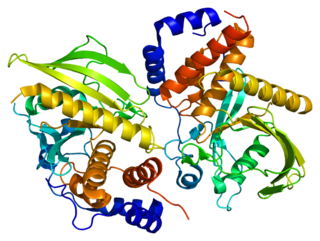
Tyrosine-protein phosphatase non-receptor type 9 is an enzyme that in humans is encoded by the PTPN9 gene.

Dual specificity protein phosphatase 22 is an enzyme that in humans is encoded by the DUSP22 gene.

Tyrosine-protein phosphatase non-receptor type 4 is an enzyme that in humans is encoded by the PTPN4 gene.

Receptor-type tyrosine-protein phosphatase H is an enzyme that in humans is encoded by the PTPRH gene.

